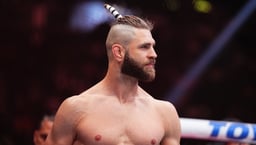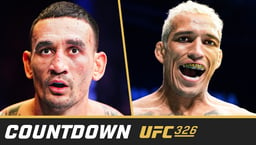
Issue 056
On November 17th 2012, George St-Pierre (GSP) climbed back inside the Octagon to do what he does best: fight. However, the question on the lips of MMA fans worldwide was the same: ‘After more than 18 months of inactivity, will GSP be even close to the same fighter he once was?’
Even for athletes as experienced and as mentally prepared as GSP, ring rust presents some concrete problems that may influence the way an athlete performs during a professional bout. Naturally, these include physical barriers, like the ability to push through hard rounds, react to difficult situations and movements, and keep up with the evolution of the sport and progress of other athletes.
But then there’s also the psychological aspect of returning to the big stage after injury, which is more to do with the mental state of athletes and their ability to get and remain ‘in the zone’ without being affected by emotional issues that may occur after long periods out of the loop.
One aspect which could have affected GSP the most is the natural, unconscious ability to deal with the emotional aspects of what’s involved in a professional fight: from the media commitments, to weight-cuts, weigh-ins, press conferences to the actual match-up on fight night. After regaining the title he lost to Matt Serra in April 2007, St Pierre had been fighting exclusively to defend the 170lb belt. For more than three years, he fought as defending champion as regularly as every four to eight months.
This inevitably set a, perhaps unconscious, pattern in the champion’s emotional approach to fighting. What we mean is, his unconscious mind would begin to recognize all these aspects and phases as more normal, usual and therefore predictable. Your mind would therefore be less affected by them. When you stop, you don’t put yourself in positions where your mind gets these signals for a period three times longer than the average break in between fights. The conclusion that there will be some repercussions for most athletes is therefore only justified and logical.
GSP will long be considered one of the best combat sports athletes to walk the earth, one of the sport's greatest welterweights and as such his UFC legend status is assured.
Even so, he would have had to take steps to minimize the effects of psychological ring rust. Apart from sports psychology and mind coaching techniques, which can greatly help achieve healthy and balanced mind-sets, there are practical and simple strategies that athletes can take. For example:
CORNERING
Go to as many shows as possible and when possible corner teammates. This helps your mind stay as close to the ‘protagonist role’ as possible.
COACHING
Coaching other athletes helps to improve your game in your mind; you begin to see things from a different perspective. Without intentional purpose, you break down the various strategies and techniques in a way that allows these to become ‘cemented’ in your mind.
MENTAL REHEARSAL
Mentally rehearse fighting. Imagine that you are performing and your mind will remain more accustomed to performing. Our unconscious mind does not know the difference between what is really happening and what is being imagined – that’s why dreams seem so real.
Let’s just say that whatever you imagine and focus on becomes realized in your mind and your brain begins to send congruent messages to your nervous system. Mental rehearsal is a very powerful way to get ready for a fight and keep your mind attuned the idea of fighting.
Another important factor may be fight nerves and performance anxiety. Despite being considered one of the very best in modern MMA, GSP will also feel the pressure of having to prove it once again – especially with the fight being on home turf and against a former stablemate, who no doubt looked up to him. Here are some tips GSP will most likely utilize to keep his nerves under control until the bell goes:
FAMILIARITY
With Greg Jackson in neither corner, both GSP and Carlos Condit may have both been unable to recreate the familiarities they’ve both become accustomed to backstage, but having trusted lieutenants and familiar faces in the locker room and at cageside always helps to reassure and settle anxiety.
ROUTINE
Fighters will often repeat the same steps as they close in on battle in the final few hours – meticulously packing kitbags, having their hands wrapped in order, striking mitts – which all breeds familiarity.
ENTRANCE
Whether it’s UFC whip Bert Watson’s call to arms, your favorite track filling the stadium, crawling into the Octagon Rashad Evans style, Tito Ortiz pointing to the mat, or the rolling wrists of Wanderlei Silva – being comfortable in the unnatural surrounding that is a professional fist fight is vital. Finding contentment in the belly of the beast is the challenge facing professional fighters at every level.
FOR THE RECORD
Georges St-Pierre defeated Carlos Condit by unanimous decision after going the full five rounds. GSP went on to win three more bouts before announcing his retirement in February, 2019.
...









